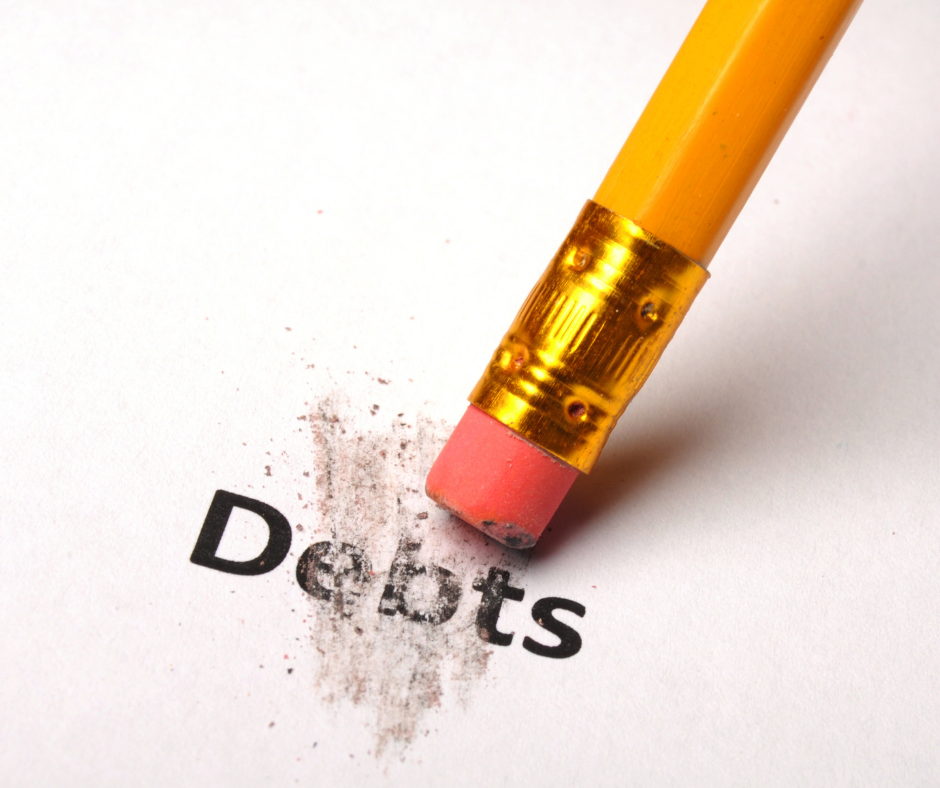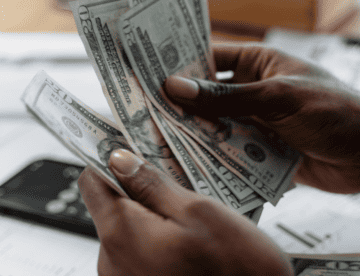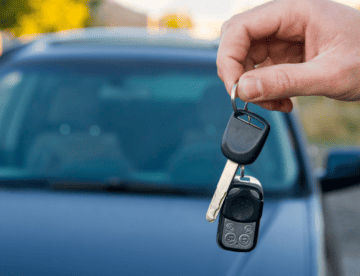
A bankruptcy discharge, sometimes referred to as a debtor’s discharge, is a bankruptcy court order that relieves a debtor from their obligation to pay certain types of debts. After the bankruptcy court issues the discharge, the creditors cannot contact the debtor, file a lawsuit over the discharged debts, or garnish the debtor’s wages or bank account. The creditor has to write the debts off. (They can still enforce liens on secured debts or repossess the collateral for loans). Bankruptcy discharge is one of the primary benefits afforded to debtors under the Bankruptcy Code and is essential for a financial “fresh start.”
What is a Bankruptcy Discharge – What Debts Can Be Discharged?
With a Chapter 7 bankruptcy, unsecured debts may be discharged. This can include credit card bills, medical bills, utility bills, repossessed vehicle bills, unpaid rent, judgments from lawsuits, certain tax debt and penalties, personal loans, and any lease contracts. There are nearly 20 types of debt that are not eligible for automatic discharge under Chapter 7, including alimony, child support, court costs, fines/penalties associated with criminal activity, student loans, certain tax debt, and retirement plan loans.
Chapter 13 bankruptcy does allow the discharge of certain marital debts in a divorce agreement, but not the discharge of spousal support, child support, or alimony. Other items you cannot discharge under Chapter 13 include HOA fees, tax-related debts, retirement loans, court fees, and fines/penalties related to criminal activity.
What is a Bankruptcy Discharge – When are Discharges Granted?
The bankruptcy court typically issues a discharge towards the end of the bankruptcy process. With Chapter 7, the court will usually try to grant the discharge as soon as possible after the deadline passes for creditor to file objections to the discharge of debt. Eligible debtors generally receive their discharge within four months after filing their Chapter 7 bankruptcy petition. (If there is pending litigation, the court will wait to issue the discharge). With Chapter 7, the bankruptcy trustee will liquidate the debtor’s non-exempt assets, if any, and divide the proceeds among the creditors. Any remaining debt will be discharged or erased.
With Chapter 13, the bankruptcy court will issue the discharge once the debtor completes all of their payments under their repayment plan. This usually takes anywhere between three to five years. Any debt remaining after the end of the repayment plan will likely be discharged.
What is a Bankruptcy Discharge – Can the Bankruptcy Court Deny My Discharge?
The bankruptcy court can deny or even revoke a bankruptcy discharge, based on the misconduct of the debtor. Under Chapter 7, the court can deny the discharge if the debtor fails to provide requested tax documents or if they try to destroy or conceal certain records. If the debtor violates a court order or fails to complete their personal financial management course, the court can deny or revoke the discharge. Additionally, the trustees and creditors in the case may also file an objection to the debtor’s bankruptcy discharge.
Similarly, the bankruptcy court may deny a discharge under Chapter 13 if the debtor doesn’t complete their course on personal financial management. The court may also revoke the discharge if the debtor obtained it fraudulently or if they fail to provide documents requested in a case audit.
Have Additional Questions? Contact Burrow & Associates’ Bankruptcy Team
If you need help with your bankruptcy case, please contact Burrow & Associates at (678) 323-2394 or our online contact page. We accept all regional filings and are ready to help you safely and responsibly get out of debt. Burrow & Associates has convenient bankruptcy office locations in Athens, Conyers, Duluth, Gainesville, Kennesaw, and Morrow. We’re currently running a promotion and will file your bankruptcy case for no money down.









